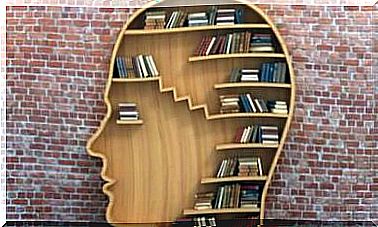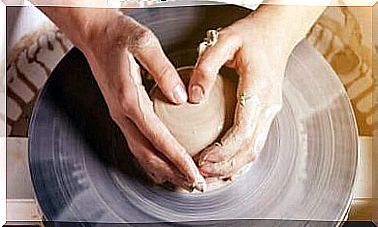Your Brain Can Heal You: Learn How

Your brain changes with every thought, every new thing you learn and every new experience you go through. This plastic, complex and fascinating body can be you weapon bearer when it comes to preventing and treating various conditions, for your brain can heal you.
Understanding this phenomenon can open the door to using new tools and mental methods to maintain health.
One of the greatest experts in the field of cerebral plasticity is undoubtedly Dr. Álvaro Pascual-Leone. He is a researcher, professor and associate dean at The Clinical and Translational Science Center at Harvard Medical School. Furthermore, he is one of the most inspiring researchers of the human brain and its potential.
We are aware that the phrase “your brain can heal you” can lead to more than one misunderstanding. Let us be clear about something: this body will not cure chronic diseases. But it can allow us to prevent them in many cases, and even reduce their impact if we improve our habits.
According to Professor Pascual-Leone, we must understand that it is up to us to “sculpt” our own brain to make it an ally instead of an enemy. Surrounding ourselves with caring and genuine people, being curious and receptive, thinking positively and reducing the impact of stress will undoubtedly allow us to improve our health and well-being.

The brain is full of complex compounds. Every day we learn more about the cosmic ocean that extends beyond our small planet, but beyond that we are now skilled astronauts who explore and discover relevant data about our neural networks.
- We know, for example, that every experience, thought and behavior can modify our brain.
- We have also discovered a process we call neurogenesis, which clearly demonstrates that our central nervous system can continue to generate new nerve cells.
- Studies such as those conducted by doctors Chunmei Zhai and Fred H. Gage of the University of California, San Diego, show just how important this process is in the prevention and alleviation of health problems such as depression, memory loss and neurodegenerative diseases.
This is undoubtedly one of the most interesting areas of neuroscience, as until recently we believed that we were only capable of generating new nerve cells during the first years of life.
Genes do not fix our brain chemistry
There are two aspects we should always keep in mind when it comes to neurobiology: genetics and epigenetics.
- These factors will always determine whether our brain is at higher or lower risk of suffering from certain pathologies.
- But when it comes to preventing them, we must always have one aspect in mind: genes do not fix our health to 100%. It is up to us to adopt new habits and better mental methods.
Being authentic sculptors of a healthier and more plastic brain will help us reduce the impact of many physical and psychological conditions.

Your brain can heal you because it has an amazing ability called plasticity. But what does that really mean?
- Plasticity is the ability of our nervous system to modify itself in response to our environment.
- Furthermore, it is an evolutionary advantage that helps us adapt to challenges and other difficulties.
- When we talk about neuroplasticity, we refer to all the changes in our brain that occur due to experience.
- Resilience is a clear example of neuroplasticity as it demonstrates our amazing ability to overcome adversity by using new strategies and learning from them.
We already know that brain plasticity is the key to tackling challenges in our environment. Similarly, researchers have discovered that aspects such as cognitive reserve allow us to manage neurological conditions better.
The keys to becoming architects of our own brains are pretty easy to use. They benefit the brain greatly because they enable it to create new connections. They are stimulating, protective and optimizing.
Let’s see what neurologist Pascual-Leone says:
A varied and balanced diet leads to better health. We should strive to buy fresh, organic products, as well as to avoid consuming too much sugar and saturated fats.
We should also include foods with omega 3, magnesium, tryptophan, vitamin K and antioxidants in the diet.
A sedentary lifestyle is one of the main enemies of physical and mental health. That is why it is recommended to engage in physical activity. Walking half an hour a day is enough.

Science has studied the impact that meditation has on our health. In fact, a study from Harvard University revealed that mindfulness can help relieve anxiety and stress.
On the other hand, your brain will be able to heal you if at some point you succeed in adopting a positive and resilient approach to life. Positive thoughts improve brain health, reduce stress, and even improve the ability to learn new things.
There are people who only sleep for six hours and feel completely okay in the morning. Others, on the other hand, have to sleep nine hours a night. What matters, however, is not the number of hours we sleep, but how high quality the sleep is. Do not underestimate sleep, because it is vital for a healthy brain!
Our brain needs social interaction. Having a good support system to lean on helps us manage depression better, strengthens nerve connections and improves the cognitive reserve.
Friendship is health and love is energy. We should strive to maintain relationships that make us happy rather than worried. believe it or not, but it makes us healthier with each passing day.
In conclusion, do not hesitate to adopt these good habits, now that you know that your brain can heal you. Remember that you can be the sculptor of this organ, which is capable of altering your well-being and even preventing you from developing certain diseases.









